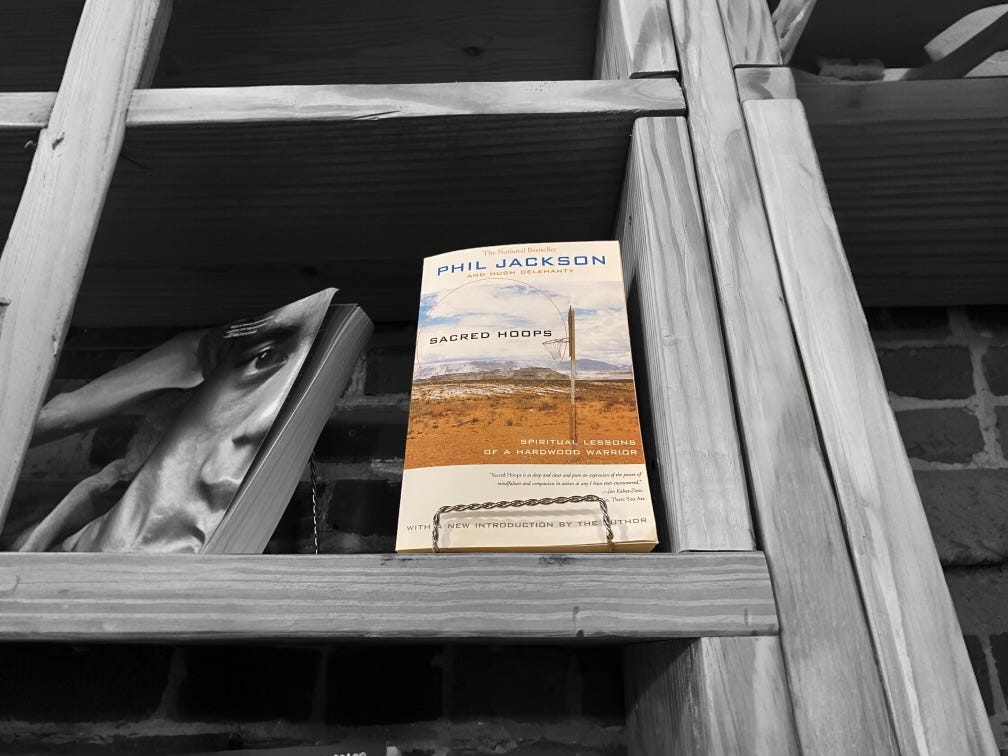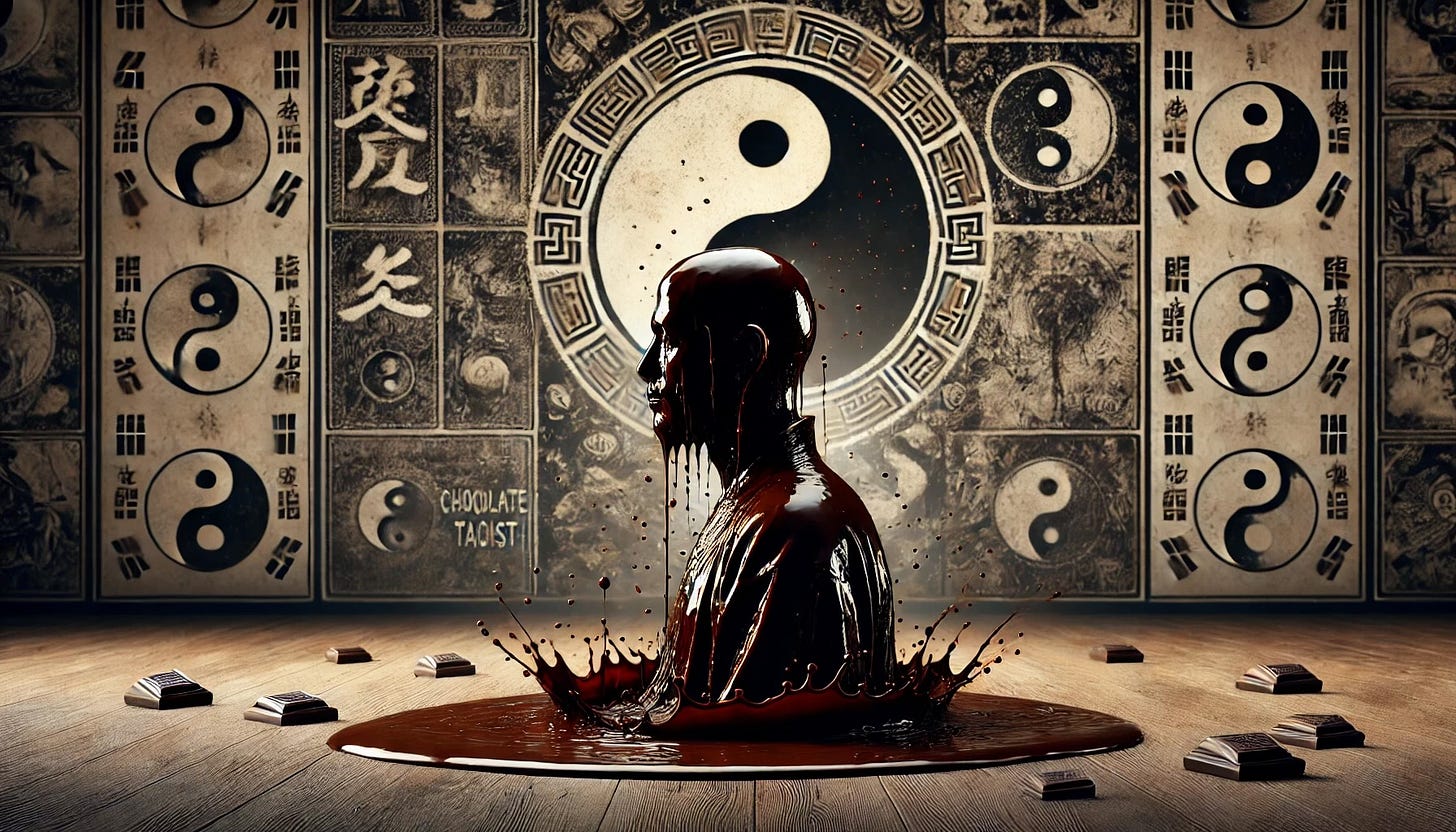The trapeze act between thought and action is a delicate one. For the reflective thinker, the internal dialogue is often a double-edged sword.
On the one hand, it is the birthplace of insight, offering deep reflections on life, ethics, and the intricacies of the human condition. Yet, it can spiral into a malaise of overthinking, a cerebral labyrinth where clarity dissolves into paralysis.
I’ve often found myself caught between these two extremes—overthinking life’s complexities while yearning for the simple wisdom encapsulated in the mantra of legendary NBA coach and Zen Master Phil Jackson: “Don’t think, just (instinctively) do.”
Jackson’s philosophy, rooted in Zen Buddhism and Taoist principles, is simple yet profound. He encouraged his teams to trust their instincts, to immerse themselves fully in the moment, free from the clutter of conscious thought.
In his book “Sacred Hoops: Spiritual Lessons of a Hardwood Warrior” Jackson recounts how this approach transformed individual players and teams alike. By quieting the mind, they were able to enter a flow state where action became effortless.
As someone who has spent years dissecting my thoughts and experiences, this “don’t think, just do” approach is often a much-needed antidote to the over-analysis that can lead me astray.
But to apply such wisdom requires a certain trust—a faith in one’s own innate abilities and intuition. This trust can be elusive when you’re someone like me who is prone to intellectualizing everything, seeking answers in logic rather than allowing for the organic flow of life.
This is where the ancient Chinese philosopher Mozi and his school of thought, Mohism, provide an interesting counterpoint. Mozi, who lived during the Warring States period of China, established a system of philosophy focused on ethics, logic, and utilitarian principles.
Unlike Confucianism, which emphasized hierarchical social harmony, Mozi argued for universal love and meritocracy. What made Mohism unique was its emphasis on practical reasoning and logical debate, a precursor to what we would now consider ethical logic.
His scholars developed early forms of dialectical reasoning to rigorously test ideas, echoing the reflective thinker’s quest for intellectual clarity.
Yet Mohism wasn’t merely an exercise in abstract reasoning—it was an active philosophy. Mozi believed that thought must serve action. Ethical principles, no matter how sound, were meaningless unless they were enacted.
In this way, Mohism challenges the overthinker's tendency to remain stuck in contemplation, emphasizing that the real value of thought lies in its practical application.
Still, there’s an inherent tension between the reflective thinker’s penchant for deep analysis and the necessity to act without overcomplicating decisions.
I’ve often found myself drawn into a loop of incessant questioning—analyzing motives, dissecting emotions, trying to predict outcomes. This can be an intellectually stimulating process, but it can also drain energy and delay action.
The trick is knowing when to silence the inner dialogue and simply move forward, trusting that what you’ve internalized will guide your steps.
Reflecting on the wisdom of both Jackson and Mozi, I see the importance of balance. Yes, engage in deep thought; yes, wrestle with difficult questions. But do so with the understanding that thinking, by itself, is not enough.
As Jackson teaches, sometimes you have to let go of the mental chatter and trust the instincts honed through experience. And as Mozi’s philosophy insists, ethics and logic must ultimately manifest in action.
In practice, this balance is less about achieving perfect harmony and more about being attuned to when it’s time to shift gears. There are moments when careful deliberation is needed to ensure decisions are ethically sound and logically consistent. But there are also moments when the mind must be quieted, when action is the only way forward.
This brings me back to the mantra, “Don’t think, just do.” It’s not a dismissal of thought but a reminder that, at times, we over-complicate the path. The power of inner dialogue lies in its ability to refine our understanding, but its potency wanes if it prevents us from acting.
Reflective thought is a tool, but like any tool, it must be used wisely. Too much analysis and the tool becomes a burden; too little, and you risk acting without direction.
The wisdom here is simple: cultivate your mind, but don’t let it be your master. Use thought to guide action, but never let it paralyze you.
In the end, the most profound insights often come not from endless contemplation but from the courage to act decisively. And in those moments, perhaps the most meaningful inner dialogue is no dialogue at all—a quiet mind, ready to respond to life’s call without hesitation.
Since 2022, I, Diamond Michael Scott, aka The Chocolate Taoist, have delivered uncommon nomadic wisdom to help you live a more interconnected and expansive life.
If this publication has been a source of wisdom for you then please consider helping me sustain it by becoming a monthly or annual contributor.
For just $6.00/month or $60.00/year, you’ll have the opportunity to share your lived experiences with fellow nomads, fueling fiery discussions that provoke, inspire, and challenge you to think differently.
So I hope you will take the plunge today and contribute to my mission of helping human travelers on this life journey.
Onward and Forward
Diamond Michael Scott aka The Chocolate Taoist







I enjoyed Jackson's book as much as I enjoy your content!
Umm….I could be on a billboard to represent all overthinkers of all time, ha!